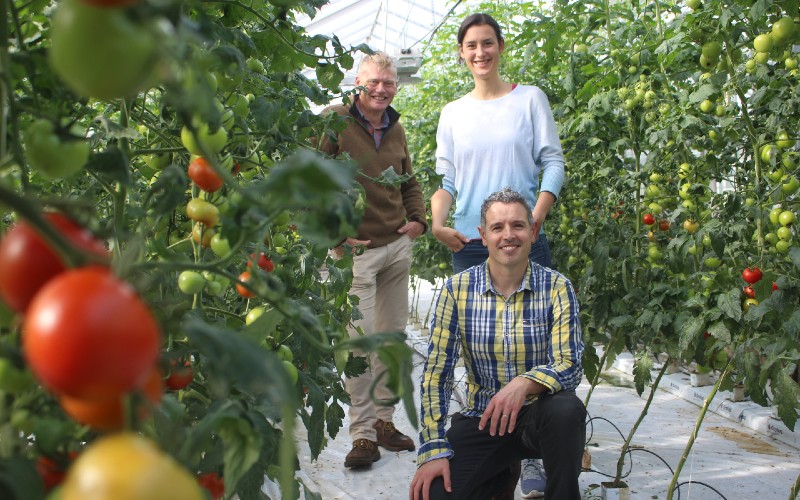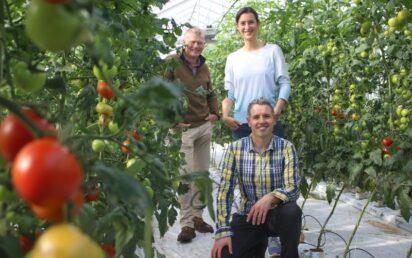A Bristol startup behind carbon-based technology to supercharge crop growth and reduce farming’s climate footprint has raised £1 million.
Glaia was founded in 2019 by two former University of Bristol scientists, Dr David Benito and Dr Imke Sittel.
The investment, led by Green Angel Syndicate and also featuring Yield Lab Europe, will allow the company to commercialise its ‘sugar dots’ which reduce emissions from crops by 30% when applied to plants.
“Many climate friendly technologies tackle the issue of emissions directly – but we decided to approach the problem from the other direction,” said CEO Dr Benito.
“What if we could improve current productivity without increasing the carbon footprint?”
The former scientists – whose idea recently featured on the BBC series 39 Ways to Save the Planet – have developed a way to improve the efficiency of photosynthesis; the energy producing process by which plants use carbon dioxide, water, and energy from the sun to fuel their growth.
“You might think billions of years of evolution had fine-tuned photosynthesis to the max – but in fact, usually less than 1% of the sun’s rays absorbed by plants are turned into biomass,” said CSO Dr Sittel.
Applying Glaia’s new-generation biostimulants to the roots or leaves gives photosynthesis a much-needed boost, she added, increasing harvests by as much as 40% without increasing fertilisers or other climate unfriendly inputs.
The technology could revolutionise the production of staple and horticultural crops, but for now the team is focusing on hydroponic tomatoes and strawberries, where they estimate the added value could initially result in a fivefold return on investment for the growers.
The objective is to expand into the EU – the Netherlands and Germany as a priority with pilot customers – within two years, and North America within three years.
Cam Ross, CEO of Green Angel Syndicate, said: “It was immediately apparent that the ground-breaking sugar dot technology could transform the CO2 influence of farming. We were impressed by the expertise and dedication of the Glaia team and believe they will have a great impact in reducing agriculture’s carbon intensity.”


